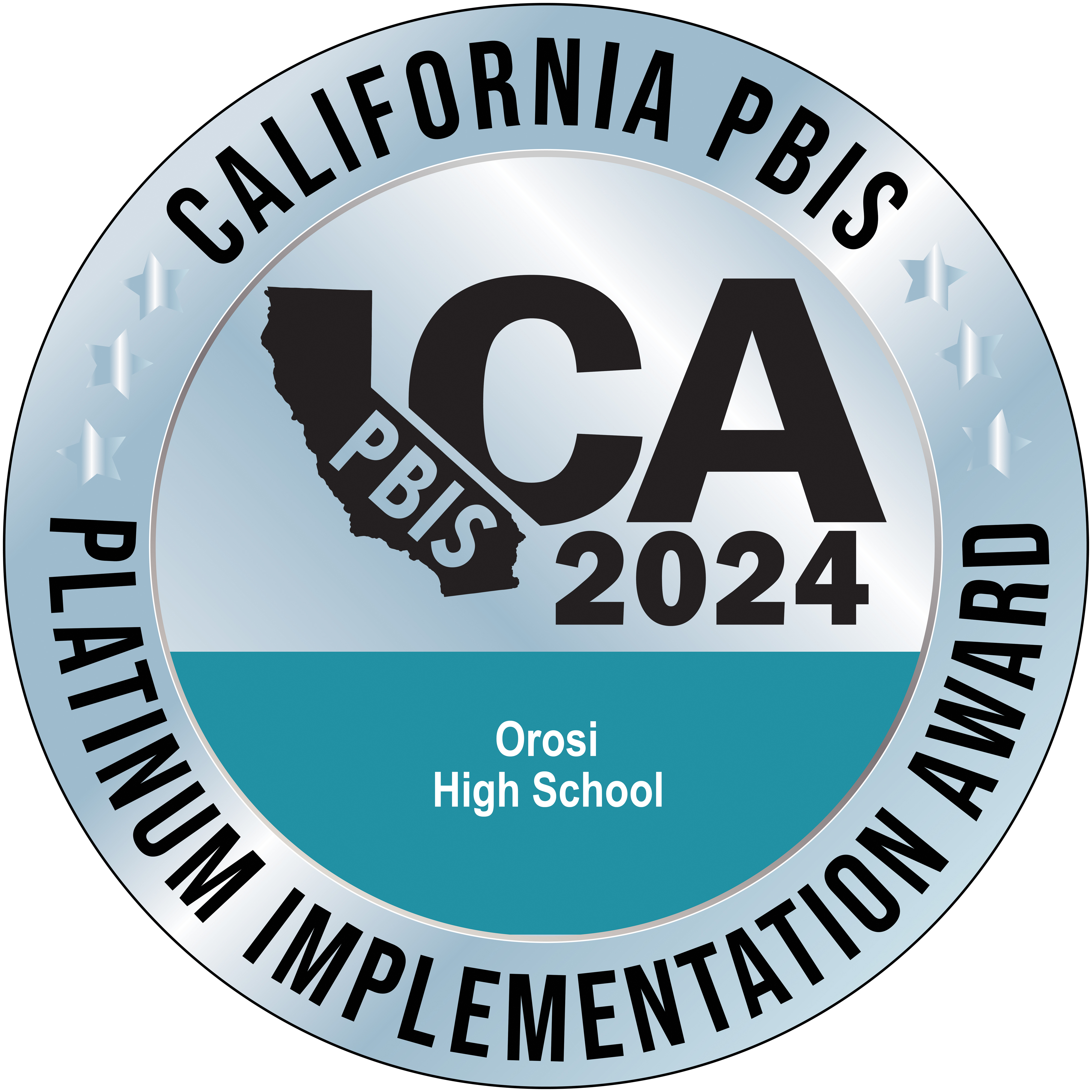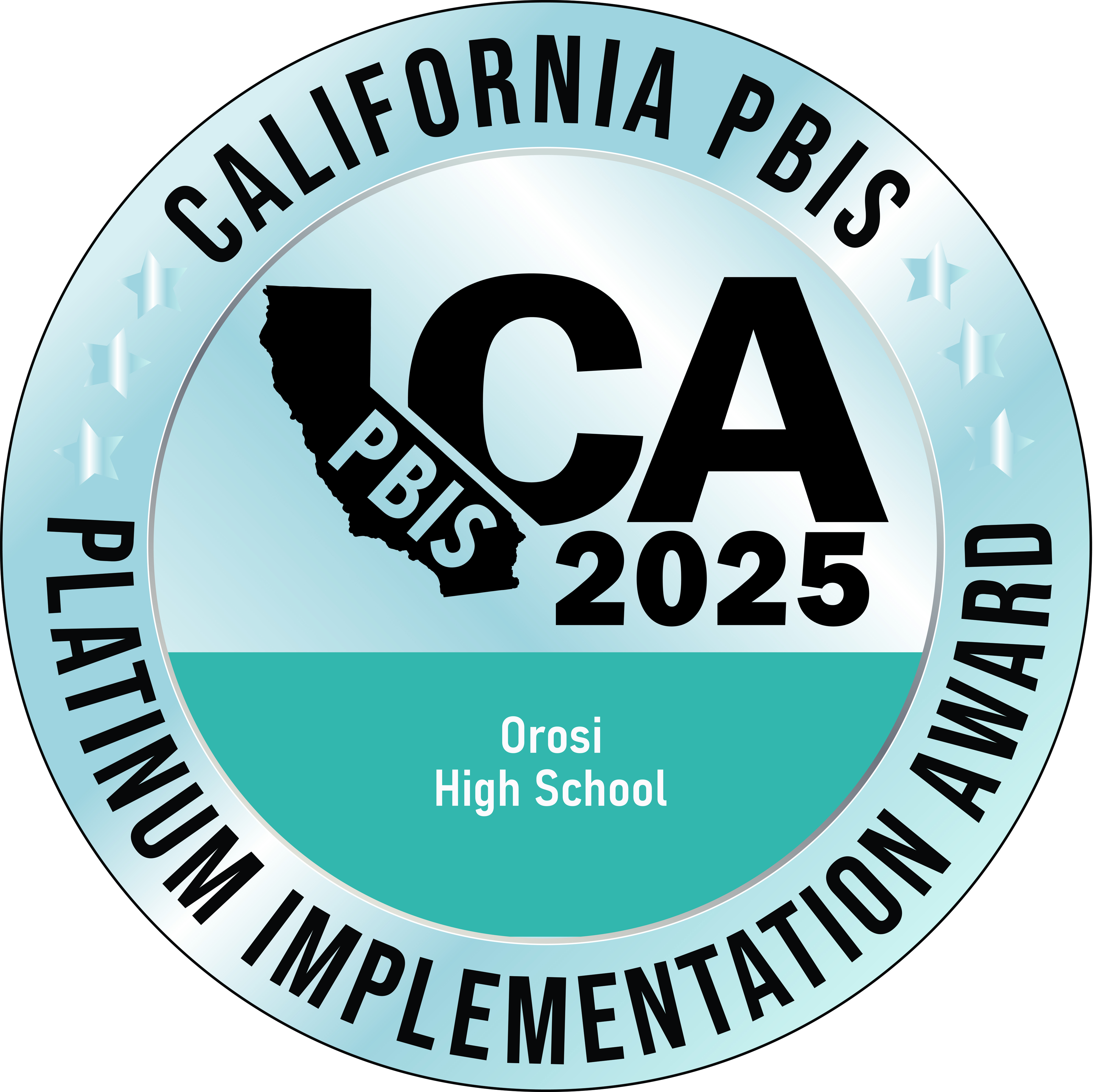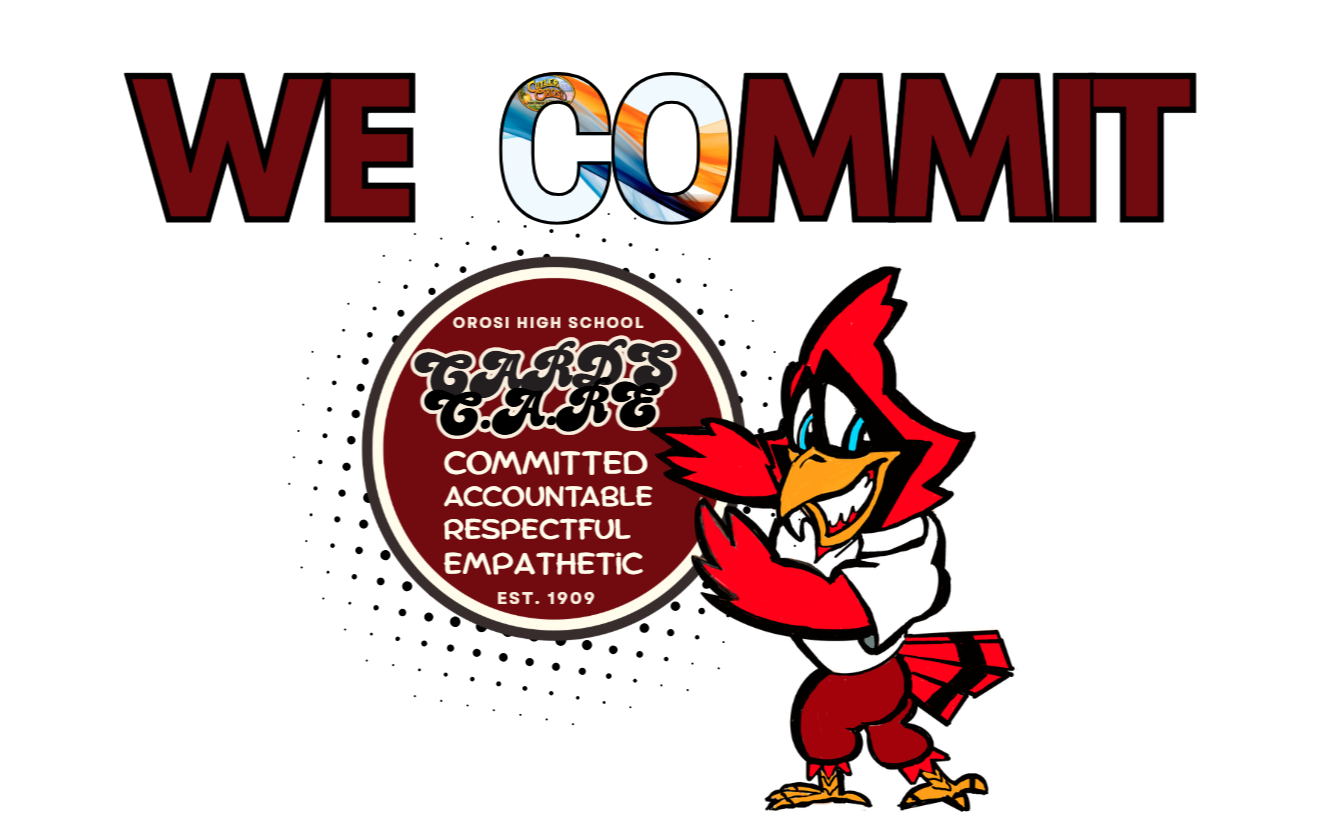
Positive Behavior in High School: Cardinals CARE
High school is a time of growth, independence, and preparation for the future. As students navigate academics, relationships, and personal goals, it's important they feel supported every step of the way. At our school, Positive Behavioral Interventions and Supports (PBIS) provides a consistent framework to help students succeed—socially, emotionally, and academically.
PBIS at our site is built around the values of Cardinals C.A.R.E:
Committed – to learning, growth, and goals
Accountable – for our actions, choices, and impact
Respectful – to ourselves, others, and our environment
Empathetic – toward diverse experiences and perspectives
These values guide everything we do and define the kind of community we strive to be—one where students are empowered to take ownership of their learning and development in a safe, inclusive, and positive environment.
A Whole-School Commitment to Growth
Through data-driven practices and schoolwide systems, PBIS helps us create a consistent, supportive environment for all students. Whether it’s through setting clear expectations, building strong relationships, or recognizing student growth, PBIS ensures that every student feels seen, valued, and capable.
Our goal is not just academic success—but well-rounded growth that prepares students for life after high school. Every member of our staff plays a role in making that happen:
Administration & Office Staff: Keep the school running smoothly, support students and staff, and help maintain a culture of CARE.
Counselors: Support academic planning, career goals, social-emotional wellness, and conflict resolution.
Community Coordinator – Focuses on family and parent support by strengthening home-school connections and linking families to community resources.
Social Workers – Provide crisis response and student-centered support while addressing barriers to learning and emotional well-being in the home and school.
School Psychologist – Provides assessment, mental health support, and individualized planning.
Teachers: Set the tone in classrooms by modeling CARE, fostering engagement, and creating space for student voice and growth.
Custodial & Operations Teams: Ensure students have a safe, clean, and welcoming environment each day.
Afterschool Staff & Coaches: Extend support beyond the bell through enrichment, mentorship, and leadership opportunities.
Together, we form a school community that lives out the values of C.A.R.E in every hallway, classroom, and interaction.
Tiered Supports for Every Student
PBIS isn’t one-size-fits-all. Our tiered approach ensures that all students get the level of support they need:
Tier 1 (Universal Supports): Schoolwide expectations rooted in Cardinals CARE, positive reinforcement, engaging lessons, and opportunities for student recognition and leadership.
Tier 2 (Targeted Supports): Small group interventions focused on specific needs—such as peer mentoring, conflict resolution, attendance support, and check-in/check-out systems.
Tier 3 (Intensive Supports): Personalized plans and wraparound services involving close collaboration with families, specialists, and outside agencies for students with more complex needs.
Building a Culture That Cares
High school students are preparing for adulthood, and the relationships they build during these years matter. That’s why PBIS in our building emphasizes connection, consistency, and compassion. When students know what’s expected, feel supported by staff, and are encouraged to be their best selves, they rise to the challenge.
At our school, Cardinals C.A.R.E isn’t just a motto—it’s how we show up for one another. Through commitment, accountability, respect, and empathy, we create a culture where every student can succeed now and in the future.
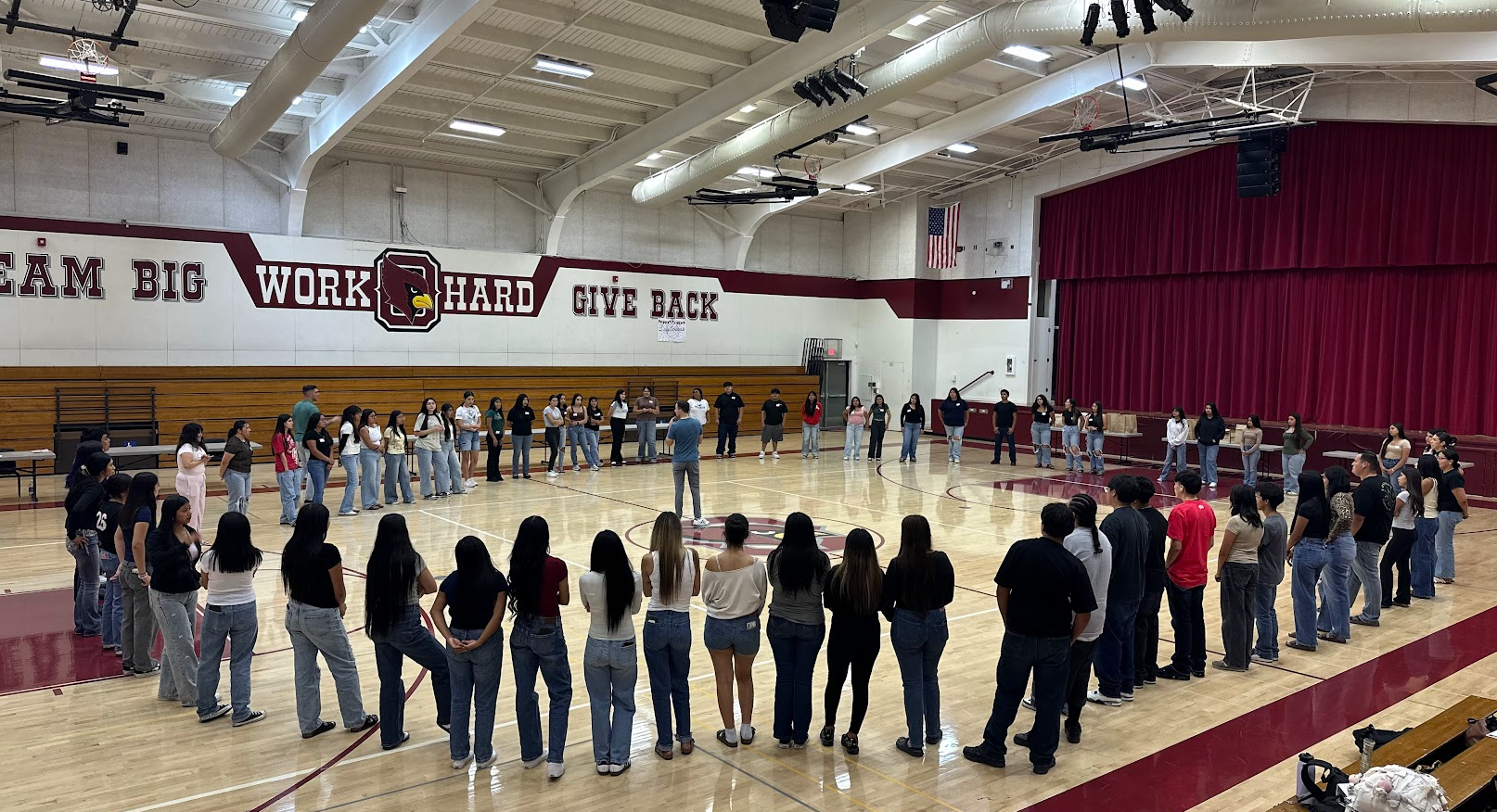
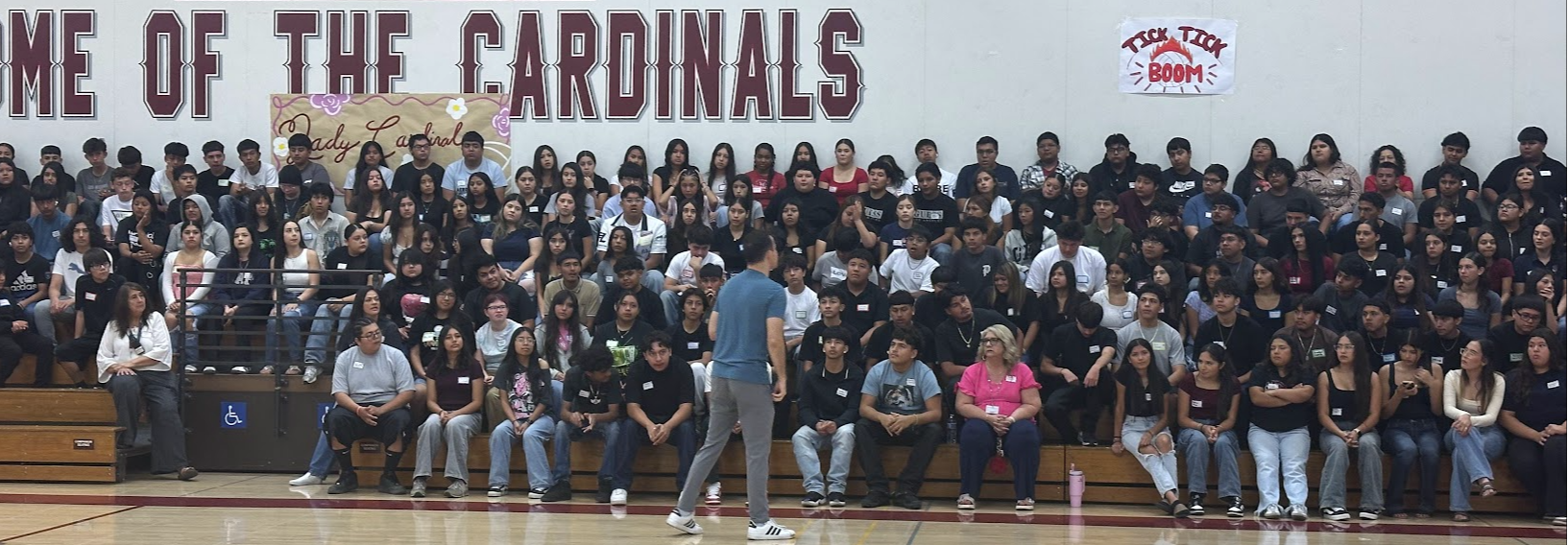
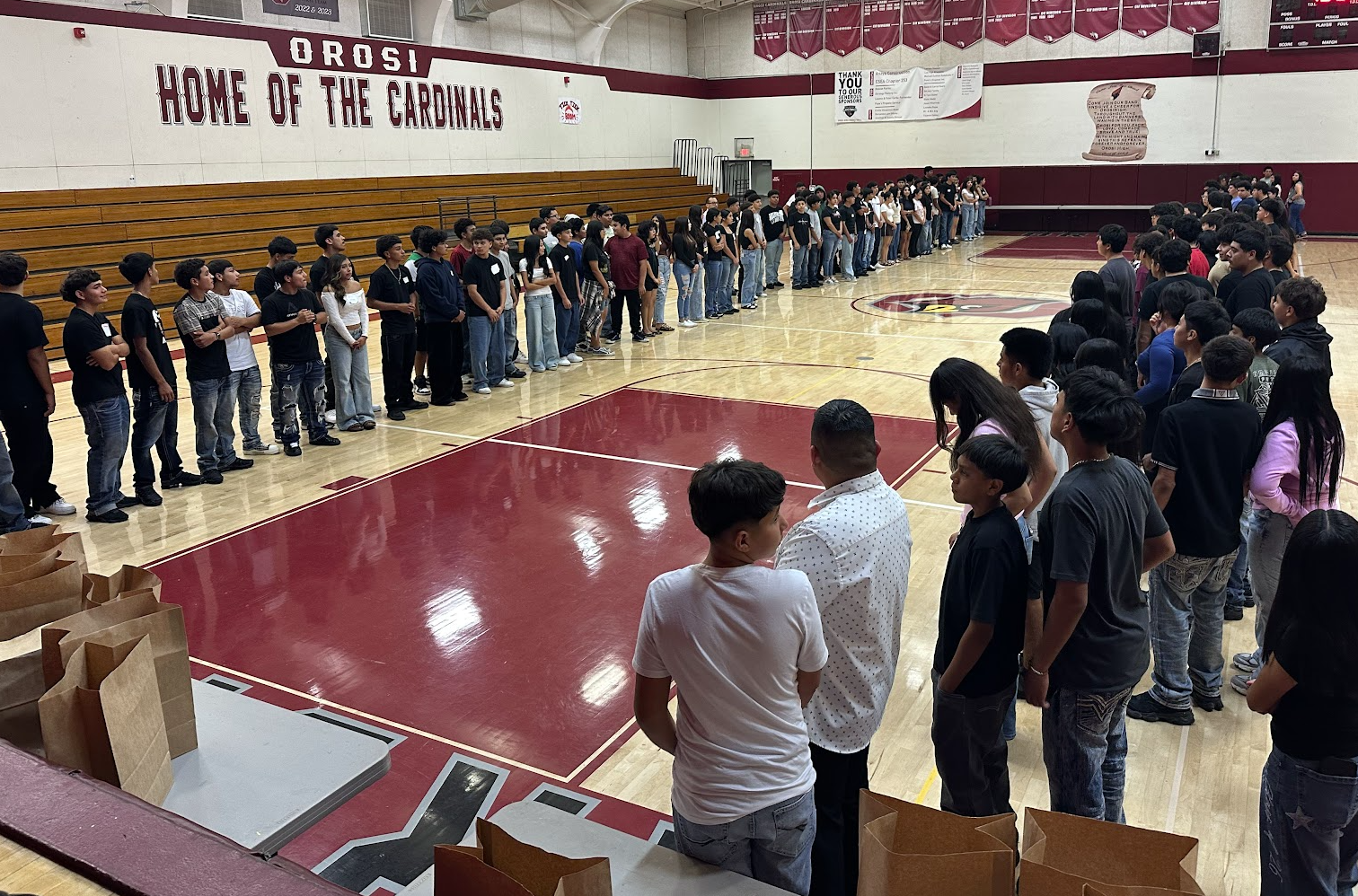

DATA DRIVEN DECISION MAKING THAT SUPPORTS STUDENT LEARNING
ATTENDANCE
BEHAVIOR
SOCIAL-EMOTIONAL
District Goal: 96%
Data as of December 12th 2025 at 3:29pm
9th Grade: 95.82%
10 Grade: 95.99%
11th Grade: 96.27%
12th Grade: 96.95%
Overall: 96.23%
Goal on track
California State PBIS Platinum Recognition Goal: 80% or more students with 0-1 major referrals
Data as of December 12th 2025 at 3:32pm
Percentage of 0-1 Referrals: 98.72%
Goal on track
Site Goal: By June of 2026, Site will increase behavior specific praise through the use of Minga praise points to acknowledge Cardinal C.A.R.E Values by 50% on average in comparison to last year data reducing the average behavior referral by 30%. Progress will be monitored using SWIS and Minga.
Data as of December 12th 2025 at 3:32pm
Minga praise assignment: 81.67% Increase
Average Behavior Referrals: 40.57 Decrease
Goal on track
HOW WE ARE SUPPORTING OUR GOALS AND HOW YOU CAN HELP
Attendance at school is supported with:
Student attendance challenges
Automatic and personal phone calls
Home visits
Attendance focus groups
Mentoring
School Attendance Review Team Meetings (SART) to support parent partnerships
Letters of notification addressing attendance status
School Attendance Review board Panel Meetings
Behavior at school is supported with:
Whole school reinforcement system on positive behavior expectations (Committed, Accountable, Respectful, Empathetic)
Mentoring
Other means of correction
Small groups to build skill development
Individual student conferences
Student study team meetings
Behavior Contracts
Minor and major referrals
Parent conferences
Social Emotional Wellness is supported with:
Universal screener with Dessa
School wide activities to bring awareness
Mentoring
Small groups for skill development
Class presentations
Individual student conferences
Crisis team response
PPS credentialed staff
Here is how you can help at home:
Make sure students keep a regular bedtime
Lay out clothes the night before.
Establish a morning routine.
Ensure students go to school every day unless they are truly sick (e.g. child has a fever, is throwing up or has diarrhea versus a minor stomachache or runny nose.)
Avoid scheduling vacations or doctor’s appointments when school is in session.
Talk to school staff for advice if students feel anxious about going to school.
Develop back-up plans for getting students to school if something comes up.
Call on a family member, neighbor, or another parent to take your child to school.
Join our PBIS Team
Here is how you can help at home:
Maintain regular communication with school staff
Establish consistent daily routines and organized study space
Discuss choices, consequences, and model accountability
Practice decision-making and pause-and-think strategies
Focus on effort and celebrate individual progress
Help identify trusted adults and support systems
Know our systems of support and discipline process
Join our PBIS Team
Here is how you can help at home:
Create regular one-on-one time for open conversations
Model healthy emotional expression and coping strategies
Validate feelings while guiding appropriate responses
Encourage healthy friendships and social connections
Practice gratitude and mindfulness activities together
Keep communication with staff on students wellness
Ask how you can partner with us to make a difference on campus or at home
Join our PBIS Team
RESOURCES

